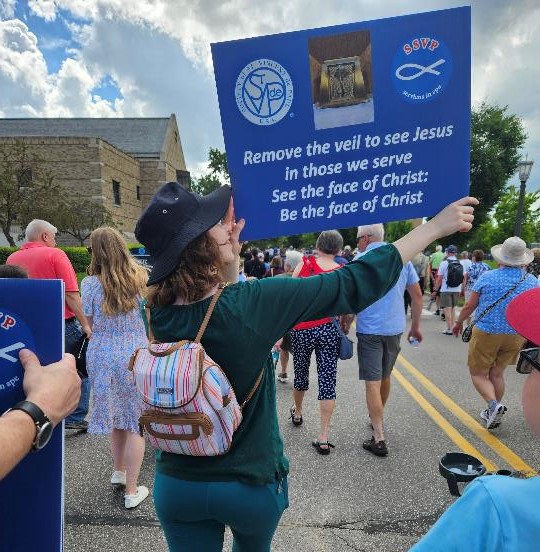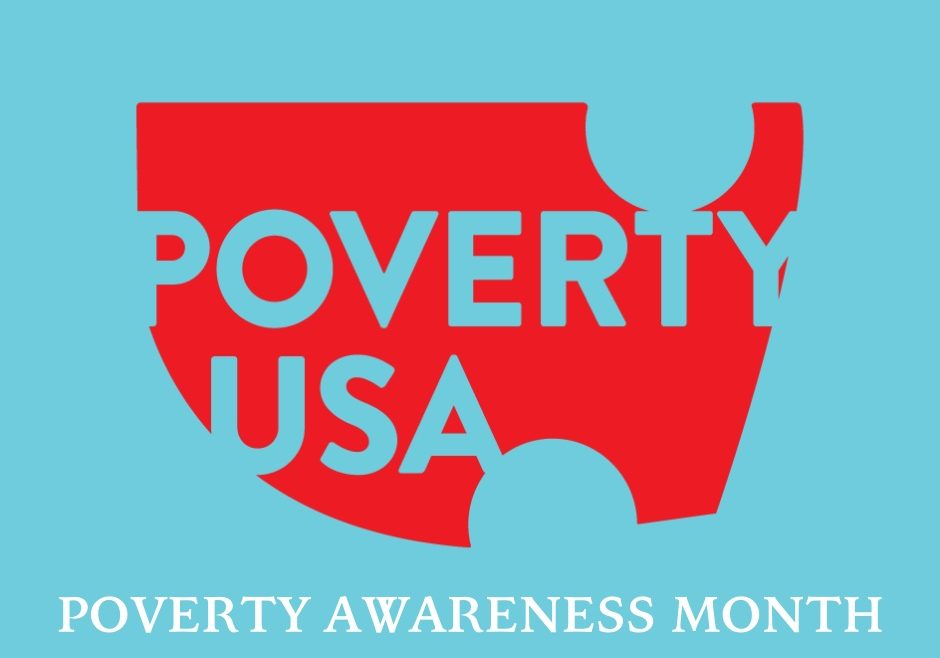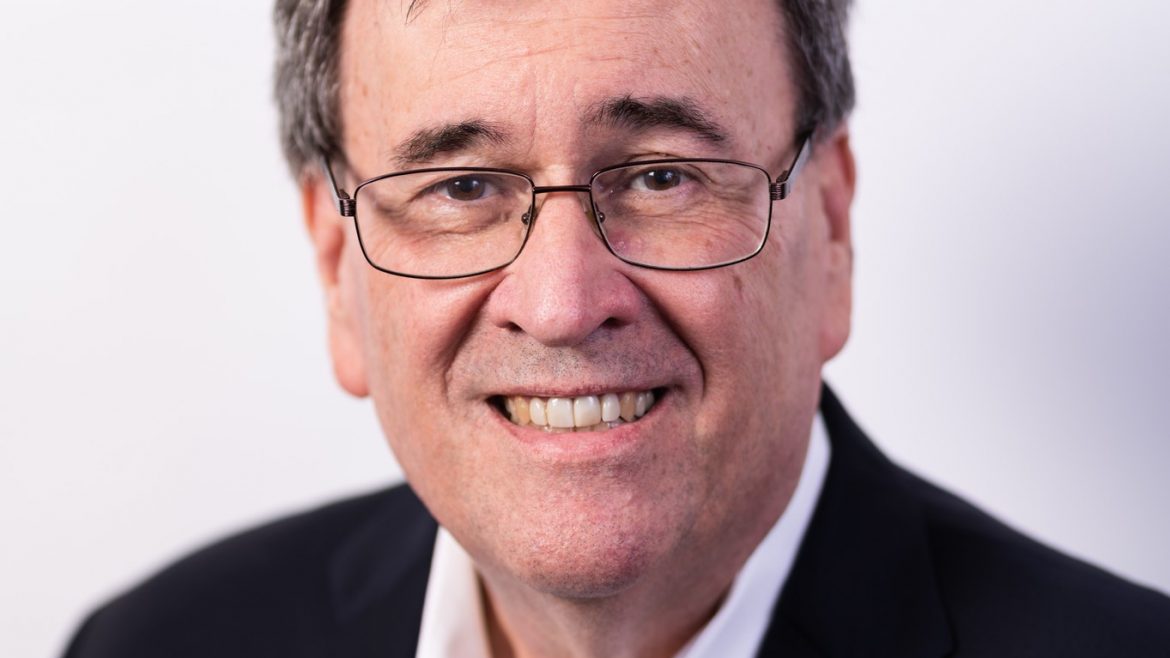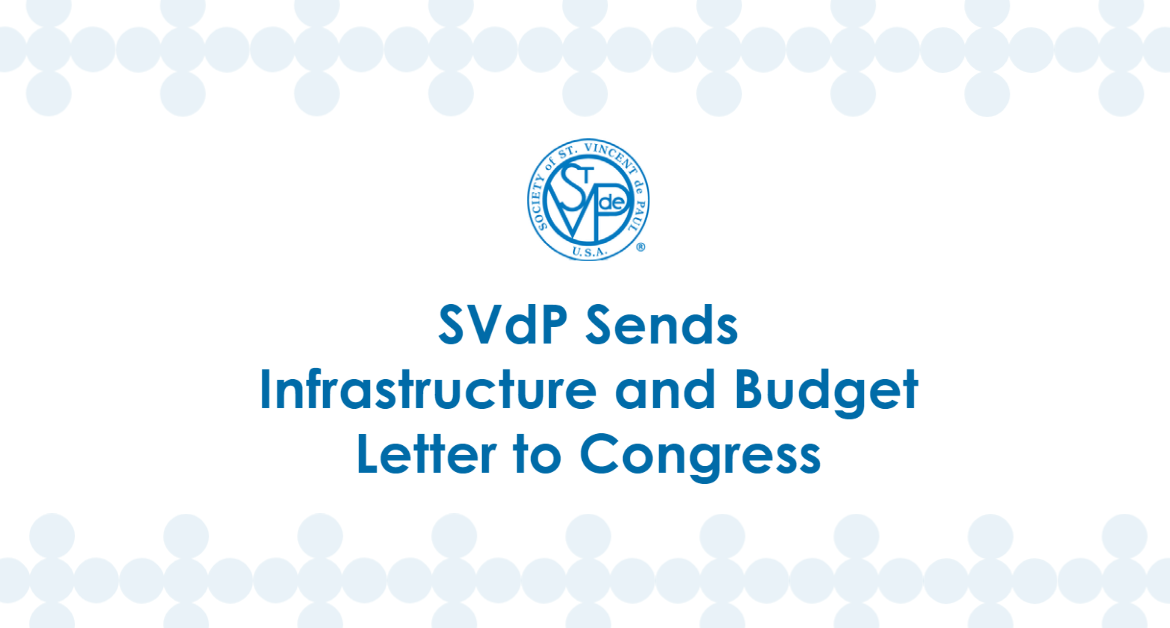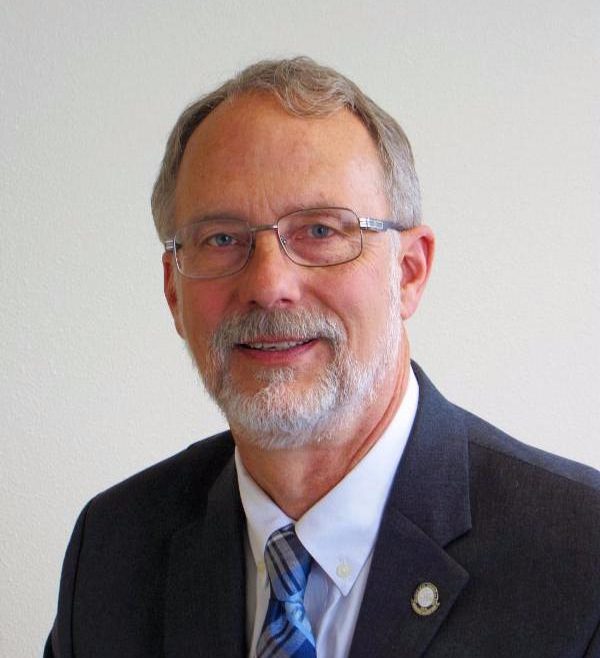Voice for the Poor Chair Bobby Kinkela recently participated in one of four Eucharistic Pilgrimages making their way across the United States as part of the National Eucharistic Congress. He shared his story with us, and urges his fellow Vincentians to participate in the Pilgrimage as it winds across the country:
At Midyear this year, National CEO Dave Barringer asked us to support the Eucharistic Pilgrimages which are leading up to the National Eucharistic Congress later this month.
As Vincentians, we always need to focus on our faith because it’s our faith that allows us to do the work that we do. Even as chair of Voice for the Poor, which deals with advocacy and politics, I see the Eucharist, politics and service as connected… or at least they should be! I recently served on the panel for a USCCB sponsored event about bringing together the Eucharist and social action.
Back to the Pilgrimage, though.
A group of 55 of us left from my home parish of St. Ann in Michigan by bus to travel to Notre Dame, IN for the Eucharistic Pilgrimage! I was happy that my three children came with me. We had a good day touring the Notre Dame basilica and viewing their art museum.
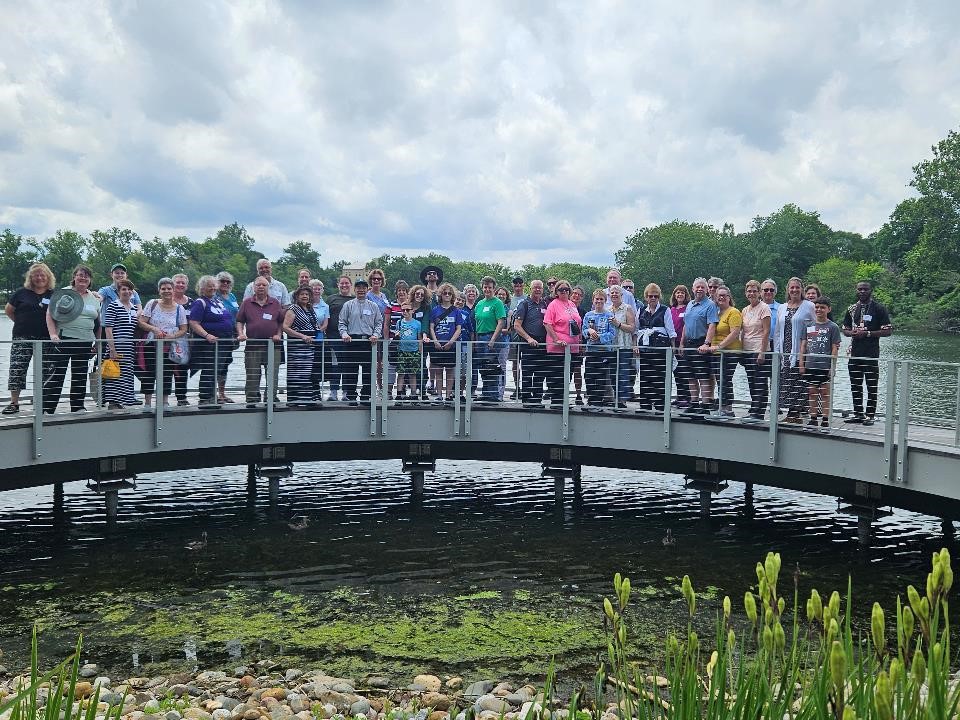
We connected with the rest of the pilgrims at the church of St. Therese of the Little Flower and our numbers swelled to thousands! I had some SVdP signs made for the Eucharistic Procession, so I was greeted by Vincentians from all over who saw the sign, and even connected with Monika Uriel, a Voice for the Poor rep from Detroit. We just happened to find each other in Indiana during the Eucharist Pilgrimage!
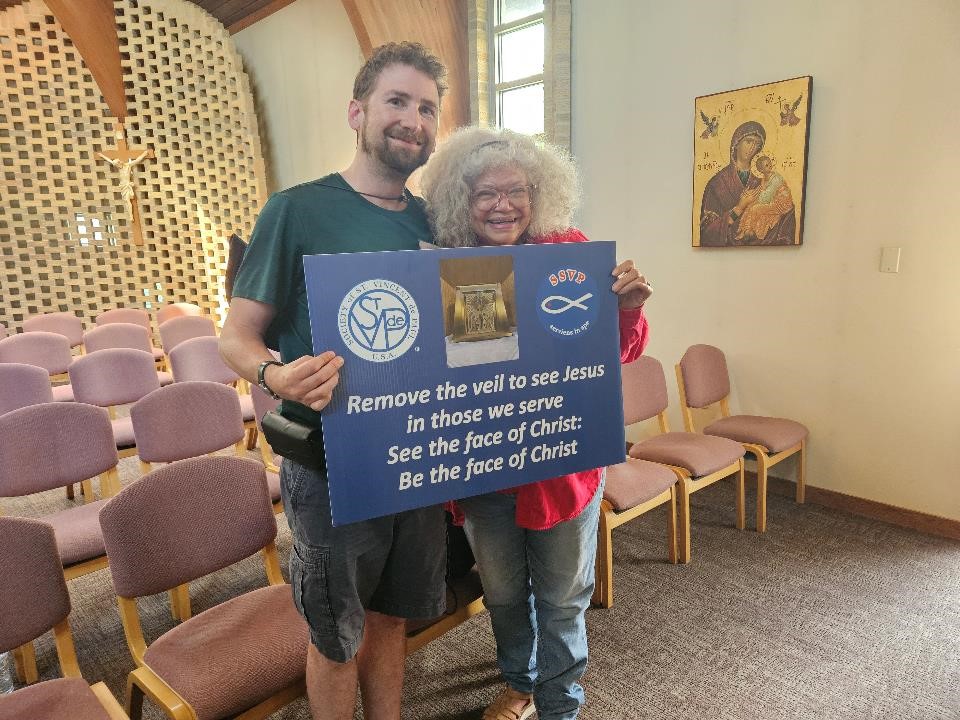
We then gathered in the Notre Dame basilica for a standing-room-only Mass and then dinner afterwards before heading home.
I encourage all Vincentians to support and get involved in the Pilgrimages and the revival that will come next year. You can learn more at the National Eucharistic Congress website. More Catholics in the U.S. means more Vincentians — and more Vincentians can only enhance our goal to serve those in need. Serve God, be friends to one another, and serve the face of Christ.

